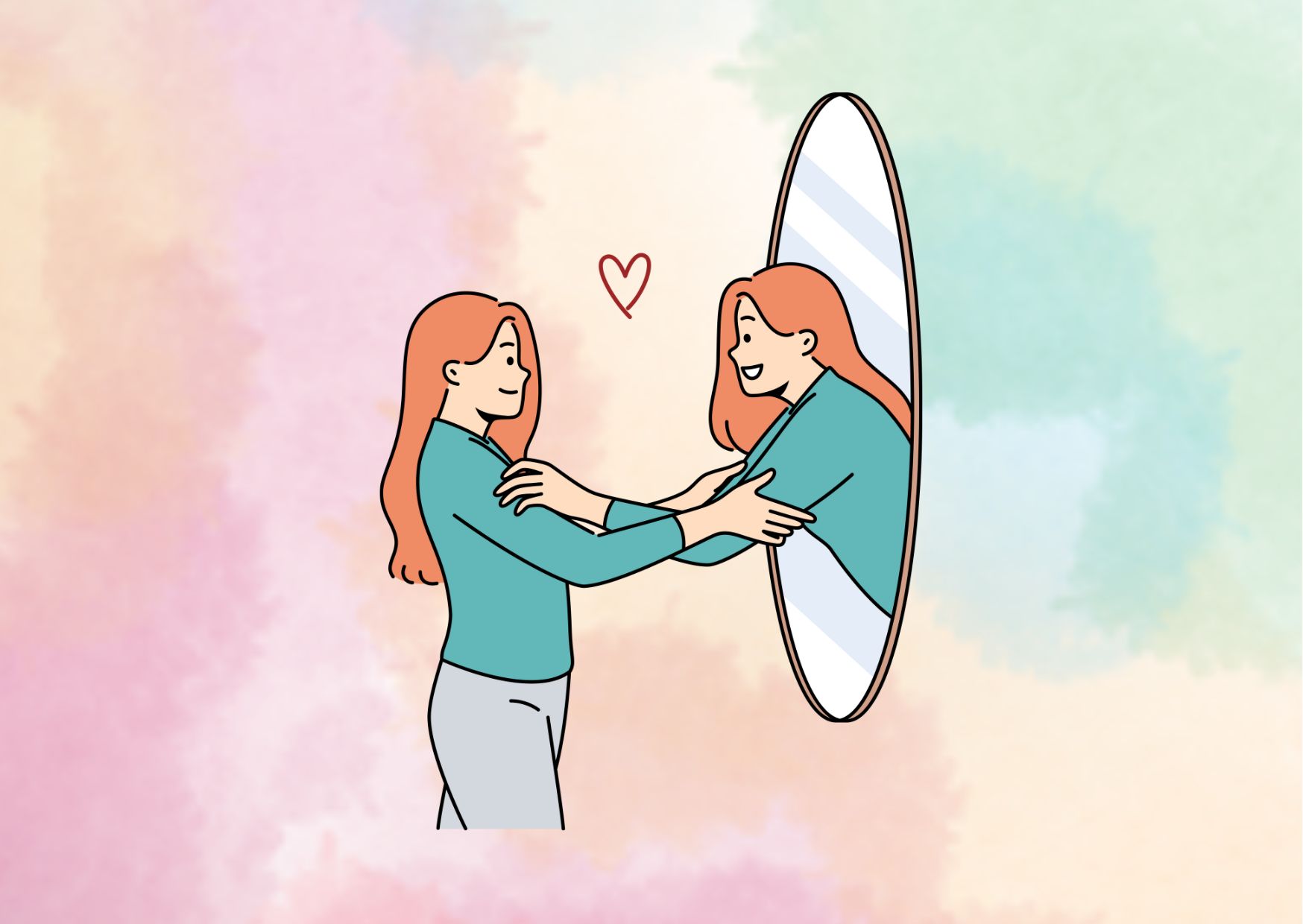Transform Your Life with These 10 Self-Acceptance Practices
Self-acceptance, the ability to embrace all aspects of oneself unconditionally, is a powerful tool for personal growth and well-being. It involves recognizing and accepting both strengths and weaknesses without harsh self-criticism or judgment. By cultivating self-acceptance, individuals can experience increased self-esteem, reduced anxiety and depression, and a greater sense of freedom and autonomy.
This article delves into the concept of self-acceptance, exploring its definition, importance, characteristics, and practical strategies for fostering it. We will examine self-acceptance in the context of therapy, relationships, and personal development, providing insights into how unconditional self-acceptance can transform one’s life and promote a more positive, mindful outlook.
Understanding Self-Acceptance
Definition of Self-Acceptance
Self-acceptance is the state of complete acceptance of oneself. True self-accepting involves embracing who you are, without any qualifications, conditions, or exceptions (Seltzer, 2008). According to Morgado and colleagues’ (2014) working definition, self-acceptance is “an individual’s acceptance of all of his/her attributes, positive or negative.” This definition emphasizes the importance of accepting all facets of the self. It’s not enough to simply embrace the good, valuable, or positive about yourself; to embody true self-acceptance, you must also embrace the less desirable, the negative, and the ugly parts of yourself.
Difference Between Self-Acceptance and Self-Esteem
Although self-acceptance is closely related to other “self” concepts, it is a distinct construct. Its close cousin, self-esteem, is also centered on your relationship to yourself, but they differ in an important way. Self-esteem refers to how you feel about yourself—whether you feel you are generally good, worthwhile, and valuable—while self-accepting is simply acknowledging and accepting that you are who you are.
As Seltzer (2008) puts it: “Whereas self-esteem refers specifically to how valuable, or worthwhile, we see ourselves, self-acceptance alludes to a far more global affirmation of self. When we’re self-accepting, we’re able to embrace all facets of ourselves—not just the positive, more ‘esteem-able’ parts.”
Full self-acceptance can lay the foundations for positive self-esteem, and the two frequently go hand-in-hand, but they concern two different aspects of how we think and feel about ourselves.
Unconditional Self-Acceptance
To begin working on yourself, the first step is not just self-acceptance, but unconditional self-acceptance. It’s relatively easy to accept ourselves when we just did something great—won an award, fell in love, or started a fantastic new job—but accepting ourselves at our lowest and with our faults and flaws in stark relief is the real mark of unconditional self-acceptance.
According to therapist Russell Grieger (2013), unconditional self-acceptance is understanding that you are separate from your actions and your qualities. You accept that you have made mistakes and that you have flaws, but you do not let them define you.
Importance of Self-Acceptance
Self-acceptance is crucial for overall mental health and well-being. Research highlights a direct link between low levels of self-acceptance and mental illness. Here, we explore the profound benefits of embracing oneself unconditionally and the detrimental consequences of a lack of self-acceptance.
Benefits of Self-Acceptance
- Emotional Well-Being: High levels of self-acceptance are associated with more positive emotions and greater psychological well-being. Self-acceptance can boost your mood and shield you from the effects of stress and depression.
- Confidence and Resilience: When you accept yourself, you gain confidence and become less vulnerable to criticism. You understand that your perceived negative qualities do not define your worth, enabling you to view situations with clarity and resilience.
- Authenticity and Freedom: Lacking self-acceptance can lead to constantly trying to hide or repress your true self, leaving you feeling drained. Self-acceptance allows you to show up authentically without worrying about others’ judgments, enabling you to feel free to be your whole self.
- Healthy Relationships: Self-acceptance fosters a sense of well-being, which in turn helps you build quality relationships with others and ensures personal growth and development.
- Compassionate Self-View: Learning to accept yourself helps you be less self-critical and creates a more positive, compassionate, and balanced view of yourself.
Consequences of Lack of Self-Acceptance
- Mental Health Issues: A lack of self-acceptance can affect the part of your brain responsible for controlling emotions, leading to mental imbalance, emotional outbursts, anxiety, depression, and post-traumatic stress disorder (PTSD).
- Low Self-Confidence: Without self-acceptance, you may experience low self-confidence, a fear of failure, and avoidance of situations that trigger negative feelings about yourself.
- Relationship Problems: Lack of self-acceptance can lead to relationship issues due to an inability to set firm boundaries and engage in negative self-talk.
- Diminished Well-Being: Harvard Medical School notes that a lack of self-acceptance can be harmful to your health and psychological well-being.
- Brain Changes: Research has linked low self-esteem and a negative self-view to lower levels of gray matter in brain regions that regulate emotions and manage stress, increasing the risk of emotional disorders and stress-related health conditions.
By embracing self-acceptance, you open the door to a more positive, fulfilling, and authentic life experience. Cultivating unconditional self-acceptance is a powerful step towards improved mental health, stronger relationships, and overall well-being.
Characteristics of Self-Acceptance
Here are the key characteristics of self-acceptance:
Embracing Your Whole Self
True self-acceptance involves embracing all facets of yourself—the good, the bad, and the ugly. It’s not enough to simply accept the positive or desirable aspects; you must also embrace your flaws, weaknesses, and less-than-ideal qualities. This holistic acceptance is crucial, as it allows you to see yourself as a complete human being, rather than defining yourself by any one characteristic, incident, ability, or weakness.
Acknowledging Strengths and Weaknesses
Self-acceptance requires an honest and fair assessment of your strengths and weaknesses. It involves recognizing your accomplishments and positive qualities without being overly vain or arrogant. At the same time, it means acknowledging your weaknesses and faults without engaging in excessive negative self-talk or self-criticism. This balanced perspective allows you to see yourself accurately and work on areas that need improvement without harsh judgment.
Unconditional Self-Acceptance
Unconditional self-acceptance is a core aspect of self-acceptance. It involves understanding that you are separate from your actions and qualities. You accept that you have made mistakes and have flaws, but you do not let them define you. This unconditional acceptance allows you to embrace your authentic self and work on improving your less-than-desirable traits and qualities without feeling overwhelmed by them.
Self-Love and Respect
Self-acceptance is closely tied to self-love and self-respect. When you truly accept yourself, you are able to love and respect yourself for who you are, without the need for external validation or approval. This self-love and respect foster a positive attitude toward yourself and a high regard for your well-being, values, preferences, feelings, intuitions, and actions—both past and present.

